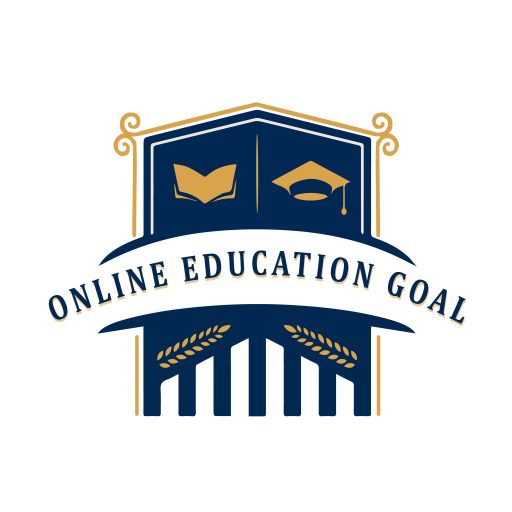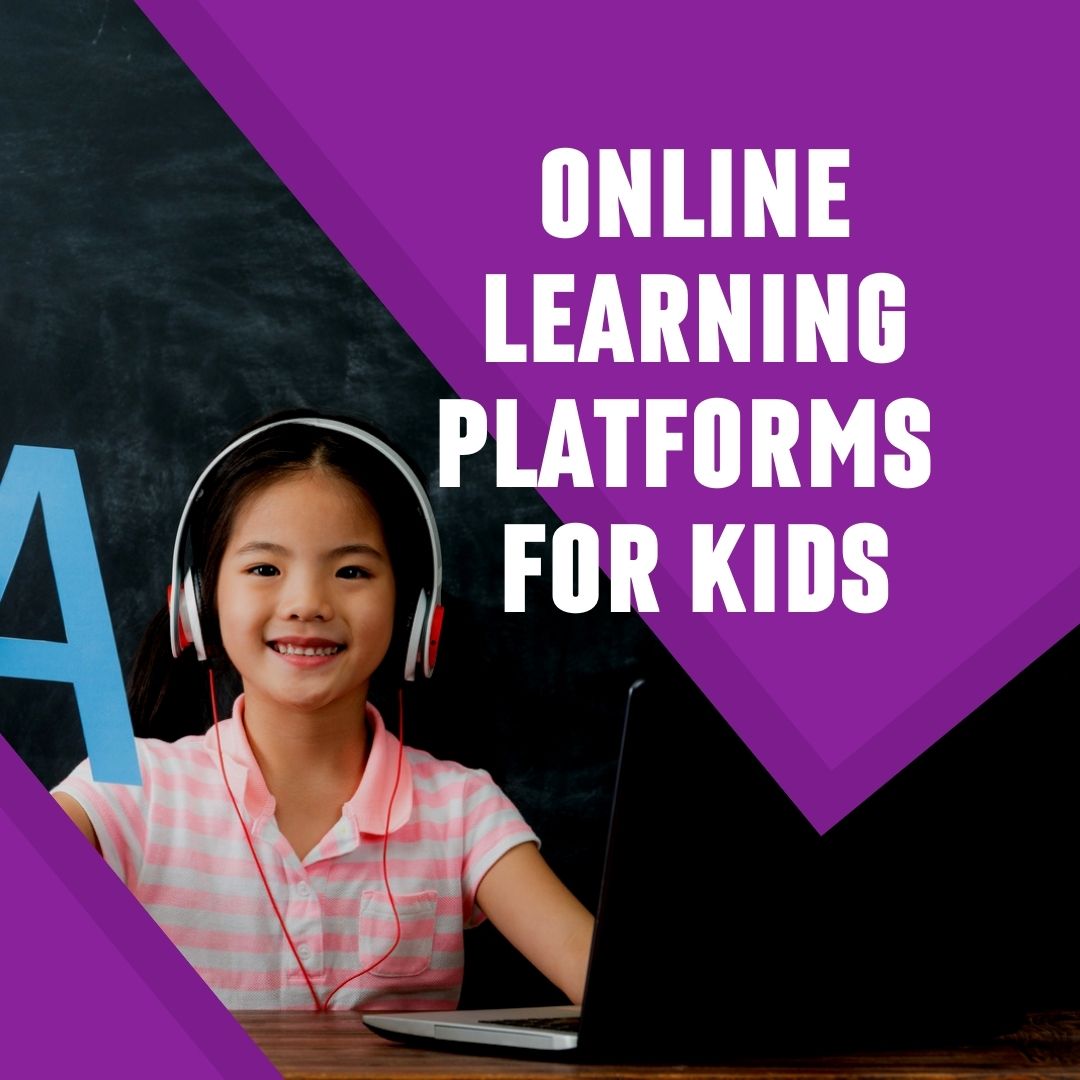Online Learning Platforms for Kids: Unlock Potential!
Online learning platforms for kids such as ABCmouse, Khan Academy Kids, and Adventure Academy offer engaging educational content. These platforms cater to varied subjects and learning levels, making education accessible and fun.
In today’s digital age, parents and educators are increasingly turning to online learning platforms to supplement children’s education. These virtual environments are designed with young learners in mind, featuring interactive lessons, games, and activities that cover mathematics, reading, science, and more.
They not only provide a safe space for children to explore new concepts but also foster a love for learning through captivating animations and rewards systems. These platforms are often accessible across multiple devices, ensuring that kids have the opportunity to learn anytime and anywhere. The focus on interactive content serves to grab their attention and hold their interest, transforming the learning experience into an adventure rather than a chore. With tailored educational pathways, these online resources adapt to each child’s individual learning pace, providing a personalized educational journey.
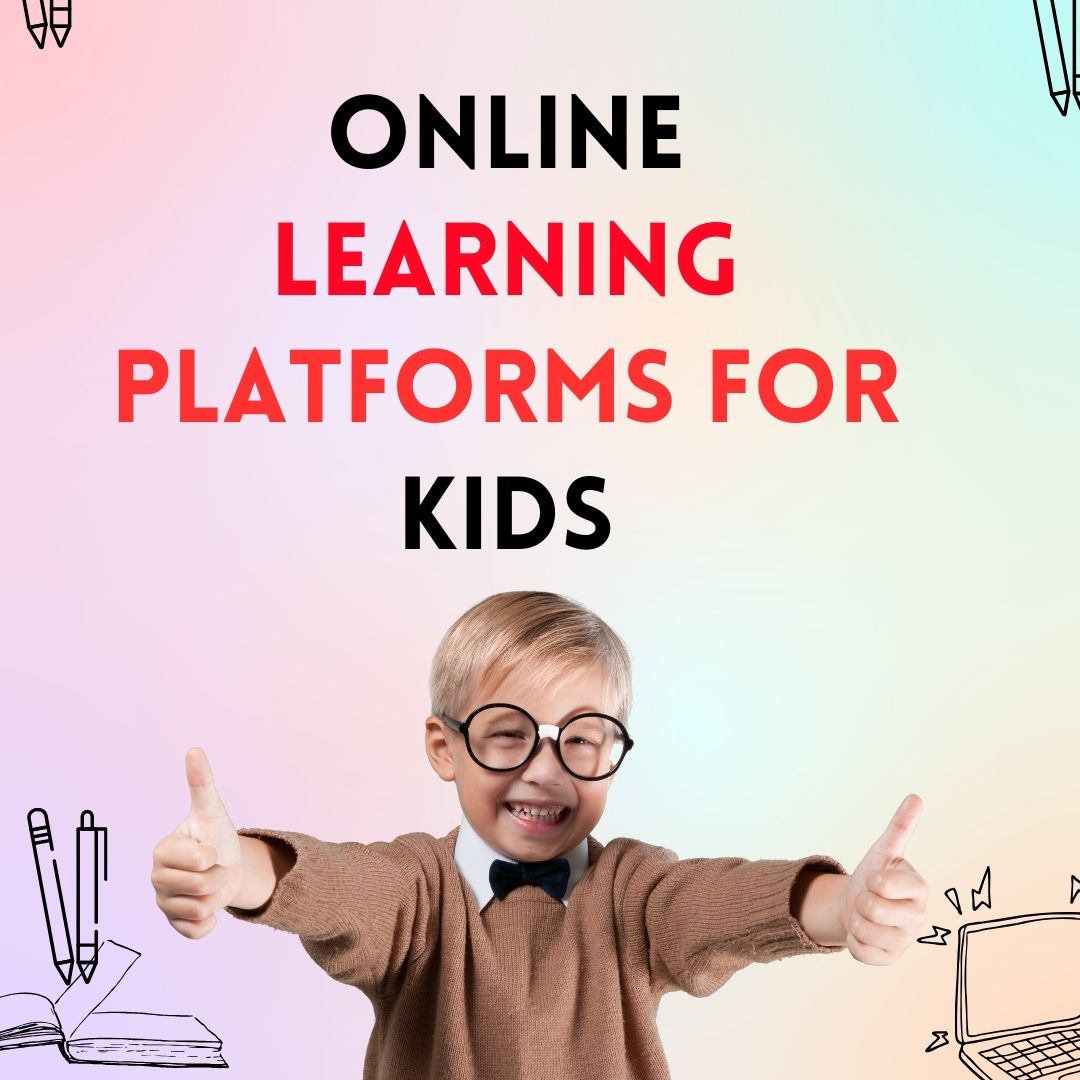
The E-learning Revolution For Children
The E-Learning Revolution for Children has transformed the landscape of education. Picture a world where kids from all over can learn anything, anytime, with just a click. The rise of online learning platforms has made this a reality, introducing an era where knowledge knows no bounds.
The Emergence Of Digital Classrooms
Digital classrooms have burst onto the scene, offering a space where learning is fun and interactive. These platforms use videos, quizzes, and games to teach math, science, art, and more. They connect students across the globe, making every online session a melting pot of ideas and creativity.
Advantages Of Online Learning For Kids
Online learning comes with a basket of benefits. Let’s unpack them:
- Flexibility: Kids learn at their pace, anytime they choose.
- Customized Content: Lessons tailor to individual learning styles.
- Interactive Resources: Engaging tools make learning stick.
- Animations
- Puzzles
- Experiments
- Real-time Feedback: Instant quizzes show what’s learned.
- Skill Building: Online learning develops digital skills early.
Parents and teachers can track progress with dashboards that show achievements and areas to improve.
| Gain | Description |
|---|---|
| Confidence | As kids master new topics, they feel more capable. |
| Engagement | Learning with games and videos keeps kids interested. |
| Collaboration | Group projects teach teamwork, even from afar. |
Selecting The Best Platform
Finding the right online learning platform requires careful consideration. Parents and educators aim to balance fun with educational value. Let’s delve into the crucial aspects that make a platform stand out for children’s learning needs.
Key Features To Look For
Interactivity holds kids’ attention. Platform features like quizzes and games enhance learning. Look for user-friendly interfaces that kids navigate with ease. Progress tracking allows parents and teachers to monitor advancements. Additionally, ensure that the platform supports various learning styles, from visual to audio. Lastly, check for offline access capabilities that enable learning without an internet connection. This proves essential in places where internet access is unreliable. Below is a quick checklist:
- Engaging quizzes and games
- Simple, intuitive navigation
- Progress tracking tools
- Supports different learning styles
- Offers offline activities
Age-appropriate Content Considerations
Platforms should provide content that resonates with specific age groups. For younger children, interaction through colorful animations and simple puzzles is key. Older kids require more challenging content, such as problem-solving tasks or coding lessons. Platforms must meet educational standards, ensuring each lesson builds on the last. Here’s a breakdown based on age:
| Age Group | Content Features |
|---|---|
| 3-5 Years | Animate character-guided lessons, Basic puzzles |
| 6-8 Years | Interactive math and reading games, Creative arts |
| 9-12 Years | Advanced subjects, Problem-solving activities |
All content should be age-appropriate and safe. Ad-free experiences prevent kids from clicking on inappropriate links. Parental controls empower adults to steer their child’s learning journey. Ensure the platform encourages positive reinforcement, celebrating achievements to boost self-esteem.
The Gamification Of Learning
Engaging kids in learning can be a challenge.
Enter the gamification of learning, a method that combines fun with education.
Online learning platforms for kids have adopted this approach.
They turn lessons into games.
Kids don’t just learn; they play and learn.
Incorporating Play Into Education
Educational games make learning enjoyable.
They help kids grasp complex concepts easily.
- Interactive puzzles for problem-solving skills
- Adventure quests to explore history and science
- Fun quizzes for language and math practice
When play is part of learning, kids stay curious and active.
Reward Systems And Engagement
Rewards boost motivation and engagement.
Online platforms use points, badges, and levels to reward progress.
| Activity | Reward |
|---|---|
| Complete a math challenge | Points |
| Read a story | Badge |
| Score 100% on a quiz | Level up |
Kids feel like heroes in their own learning adventure.
They look forward to achieving new rewards.
Safety First: Secure Platforms For Kids
When choosing an online learning platform for your child, safety should be top priority. Protecting kids in the digital space is as vital as in the real world. This section covers platforms that place a premium on security, ensuring that your kids can learn without risk.
Privacy Concerns
Keeping your child’s information private is crucial. Secure learning platforms have strict policies. They prevent data sharing without consent. Ensure the platform is compliant with child privacy laws like COPPA. Look for sites using encryption to safeguard data. Trustworthy platforms display their privacy practices clearly. Here is what to check:
- Clear privacy policies
- Compliance with COPPA
- Encryption methods
- Limitations on data sharing
Parental Controls And Monitoring
Control and oversight give peace of mind while kids navigate online learning. Good platforms offer tools for parents. You can monitor progress and control access. Set time limits and content filters to create a balanced learning environment. Check for features like:
| Action | Description |
|---|---|
| Progress Tracking | View your child’s learning milestones. |
| Access Control | Choose what your child can see and do. |
| Time Management | Set time limits for daily learning sessions. |
Select platforms which send regular updates to parents. Use settings that match your family’s needs.
The Role Of Parents In E-learning
Parent involvement is crucial in online learning, especially for kids. When parents take an active role, children usually perform better. Let’s explore how parents can best support their child’s e-learning journey.
Guidance And Participation
Being present is key for parents in e-learning. It’s not just about logging kids in. Parents should understand the platform and the content. This way, they can guide their children better. Kids feel supported when parents show interest. Join in on lessons if possible. Ask questions about what’s being learned. This interaction boosts confidence and learning outcomes.
How can parents make this work?
- Review lessons before and after.
- Discuss topics to reinforce learning.
- Engage with teachers for updates.
- Set up a dedicated learning space.
Balancing Screen Time And Activity
Screen time needs balancing with physical activity. Long hours staring at screens are not healthy. They can strain young eyes and lead to restlessness. Parents should encourage regular breaks. During these breaks, activities away from the screen are essential.
Strategies for balance:
| Screen Time | Activity |
|---|---|
| Lesson completion | Outdoor play |
| Online reading | Hands-on crafts |
| Video viewing | Family games |
Ensuring a mix of learning and play keeps kids motivated and healthy. Remember, balance is the key to successful e-learning for children.
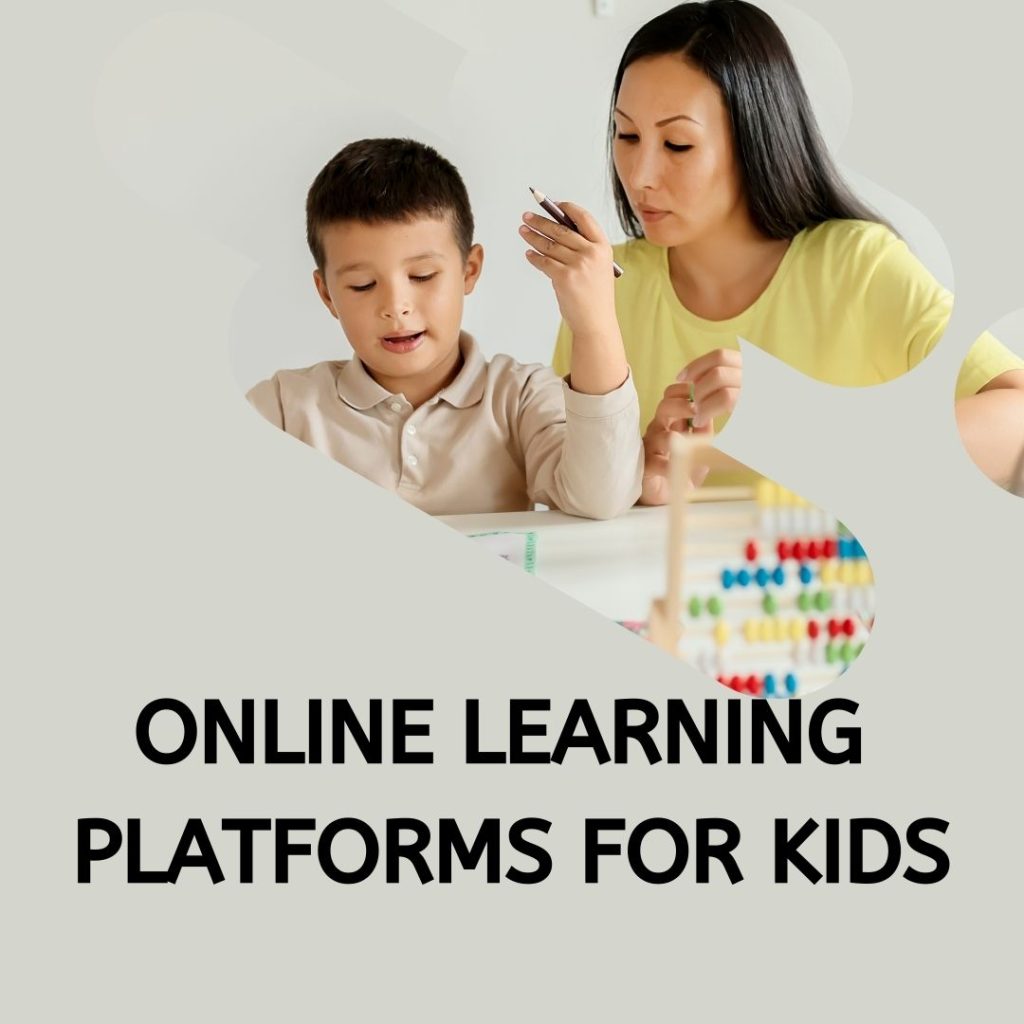
Social Aspects Of Online Learning
Diverse Learning Styles And Adaptation
Online learning platforms are revolutionizing education for kids. They embrace diverse learning styles, ensuring every child’s educational needs are met. Kids learn differently, and these platforms adapt to individual preferences and abilities. This not only helps kids grasp concepts more effectively but also fosters a love for learning.
Personalized Learning Paths
One size does not fit all, especially in learning. Online platforms offer personalized learning paths that cater to different strengths and interests. Kids can move at their own pace and choose activities that make learning fun and effective for them.
- Interactive games for hands-on learners
- Video lessons for visual learners
- Audio exercises for auditory learners
Assistance For Learners With Special Needs
Every child’s ability is unique, and special needs require special attention. Online learning platforms offer resources that provide crucial support for learners with special needs. Tools and features include:
| Tool/Feature | Function |
|---|---|
| Text-to-Speech | Helps kids with reading challenges |
| Interactive Subtitles | Aids those with hearing impairments |
| Customizable interfaces | Assists children with visual processing |
Such features help children overcome learning barriers and achieve their full potential. They can enjoy satisfying and successful learning experiences.
Measuring Success And Progress
Understanding a child’s progress in online learning platforms is vital. It ensures that kids are on the right path. Let’s dive into how to measure success and progress effectively.
Performance Tracking
Tracking a student’s performance is key to successful learning. Online platforms do this well. They record scores and show reports. This makes it easy to see improvements or areas that need more work. Colorful charts and graphs can make this data fun for kids to review.
- Time spent on lessons
- Quiz and test scores over time
- Completion of lessons and courses
Many platforms also offer badges and certificates. These rewards motivate kids. They make learning feel like a game.
Continuous Feedback Mechanisms
Feedback helps kids understand what they’re doing well. It also guides them on what to improve. Platforms usually have instant feedback features. This includes correct or incorrect answers and hints.
Teachers and parents can give personalized feedback too. They use the platform’s communication tools. This encourages kids to ask questions and get help when they need it.
| Feature | Benefit |
|---|---|
| Instant grading | Kids see results immediately. |
| Discussion boards | Kids engage with peers and teachers. |
| Progress reports | Parents track achievements. |
Continuous feedback is a powerful tool. It keeps kids engaged. Parents can also stay connected with their child’s learning journey. This partnership between students, teachers, and parents leads to better outcomes.
Supplementing Traditional Education
In today’s fast-paced world, traditional education benefits from modern support. Online learning platforms for kids play a key role in reinforcing school work. These resources are not just for struggling students; they’re powerful tools for enrichment. At home, on the go, or during a break at school, online platforms are available anywhere, anytime. Let’s explore how these tools integrate with what kids learn in class and enhance extracurricular learning.
Integration With School Curricula
Online learning platforms are designed to complement classroom learning. They often offer courses that align with what teachers cover. For example:
- Math games that make fractions fun.
- Science videos that bring the solar system to your screen.
- Interactive language learning for global communication.
These tools are tailored to match learning standards and often allow educators to track student progress. They provide additional practice and clarity, helping to solidify understanding.
Summer And After-school Programs
When school’s out, learning doesn’t have to stop. Online platforms host a variety of summer and after-school programs. These programs:
| Offer Enrichment | Build Skills |
|---|---|
| Coding workshops to create games | Reading clubs to discover new books |
| Art classes for digital creativity | Problem-solving challenges |
| Science experiments to try at home | Math puzzles that tease the brain |
These programs keep young minds active, prevent summer slide, and encourage a love for learning beyond the classroom.
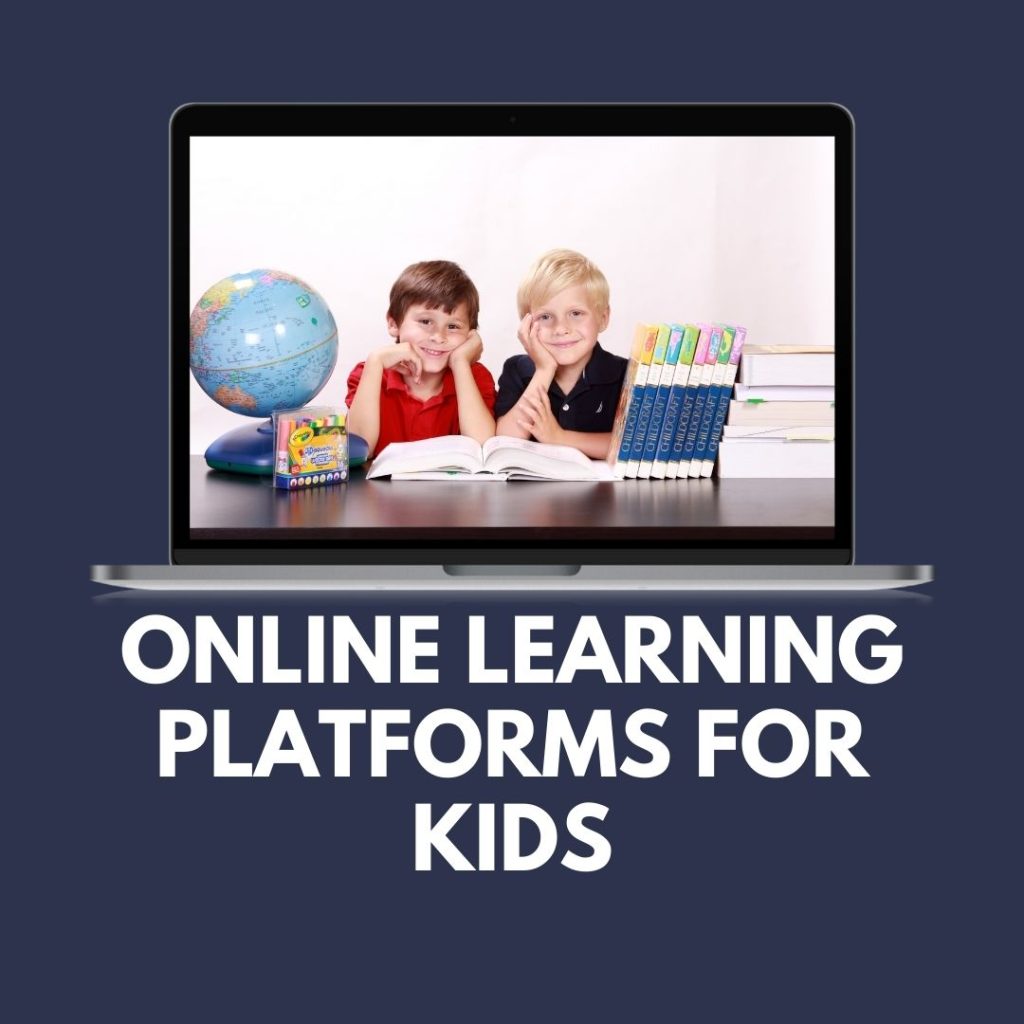
The Future Of Online Learning For The Young
Imagine a world where learning is not bound by walls or books. A place
where kids can discover new ideas right from their own homes. The
future of online learning for children is vibrant and filled with endless
possibilities. Through interactive platforms and engaging
content, young learners will navigate new ways to absorb knowledge
tailor-made just for them.
Innovations On The Horizon
The digital classroom is evolving. We see tech that feels like magic. Soon,
virtual reality (VR) will let students explore ancient Egypt right
from their desk. Artificial intelligence (AI) will provide personalized
lesson plans and adapt to each student’s pace. These future tools aim to
make learning not just informative, but truly exciting for kids.
- VR Field Trips to historical sites
- AI Tutors for homework help
- 3D Printing projects for hands-on learning
- Interactive Games that teach coding
- Languages learned through Augmented Reality (AR)
The Long-term Impacts On Education
Online learning platforms are more than a trend—they’re reshaping education.
They provide access to knowledge beyond local schools. Skills like
time management and self-motivation will become natural to kids.
These days spent learning online will shape a new generation of
self-learners, ready for the challenges of tomorrow.
| Impact | Details |
|---|---|
| Flexible Learning | Kids learn at their own pace and time. |
| Global Perspectives | Students interact with peers worldwide. |
| Tech Efficiency | Kids become fluent in digital tools early. |
| Enhanced Creativity | Learning through games and projects. |
Frequently Asked Questions Of Online Learning Platforms For Kids
What Are Top Online Learning Platforms For Kids?
Online learning for children offers diverse options with platforms like ABCmouse, Age of Learning’s comprehensive early learning app, or Khan Academy Kids, known for its free, fun educational content. Others include Adventure Academy for elementary and middle-schoolers, and Reading Eggs, focusing on literacy.
How Do Online Platforms Enhance Kids’ Education?
Digital platforms can significantly enrich a child’s learning experience. By incorporating interactive content, gamification, and adaptive learning technologies, they cater to individual learning paces, keep kids engaged, and support a broad spectrum of subjects, from math to art.
Can Online Learning Platforms Improve Child Literacy?
Yes, specialized online platforms such as Reading Eggs are designed to boost literacy. They use engaging phonics-based games and activities to help children develop reading and comprehension skills, catering to various age groups and proficiency levels.
Are Online Learning Programs Safe For Children?
Many online learning platforms prioritize child safety with robust security protocols, including secure logins, privacy protection, and content filters, to create a safe digital learning environment. It’s vital to choose reputable platforms and monitor usage to ensure safety.
Conclusion
Navigating the multitude of options, online learning platforms for kids offer endless possibilities. They tailor education to our digital natives, fostering growth and curiosity. Choose the right one, and watch your child’s love for learning flourish. Remember, the best investment in their future starts with quality education today.
Embrace the digital classroom journey.
